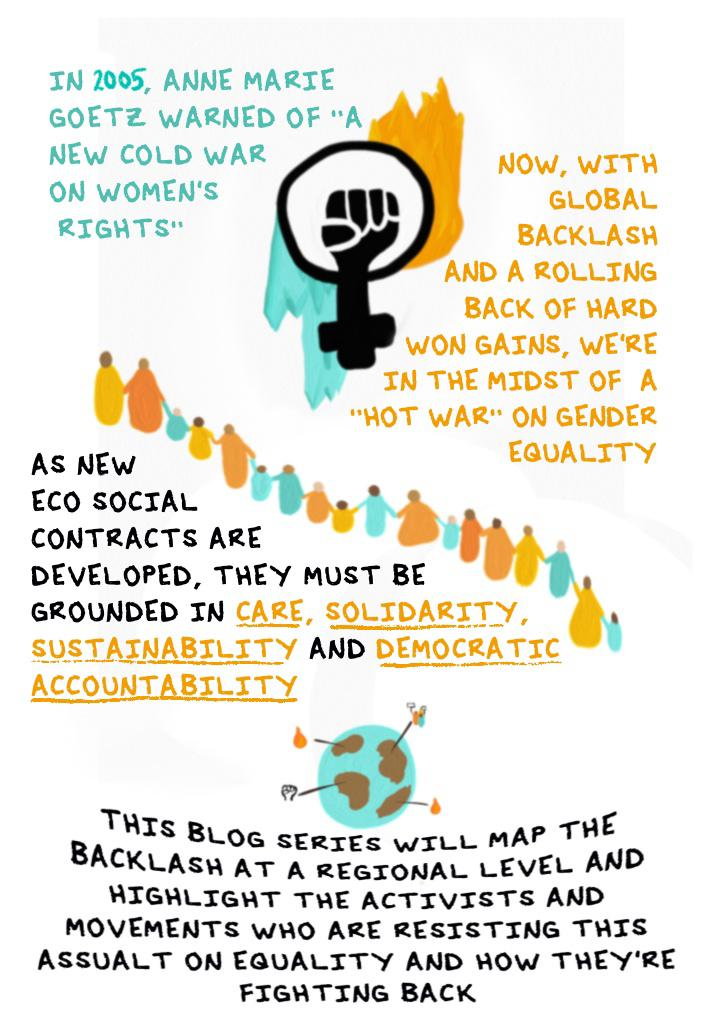Gender and Climate: Reframing the Eco-Social Contract
- Jean McLean and Paramita Dutta
- Feb 26, 2025
- 4 min read
Updated: Mar 21, 2025
As we approach the 30th anniversary of the Beijing Declaration and the 2025 session of the Commission on the Status of Women (CSW) we must engage deeply with the intersection of gender and climate. This is no longer a side note in global policy discussions; it is central to addressing the crises of our time. Emphasizing gender-responsive climate action must be the cornerstone of an evolving eco-social contract. This concept, which envisions sustainable development rooted in equality and care, cannot succeed without addressing systemic gender inequalities.
Gender and Climate: A Critical Nexus
Climate change disproportionately impacts women and marginalized genders, particularly in the Global South. Women are overrepresented in roles reliant on natural resources—subsistence farming, water collection, and caregiving—which are threatened by climate shocks. Yet, women are often excluded from decision-making processes in climate governance. This marginalization limits their ability to shape policies that directly affect their lives and perpetuates cycles of vulnerability.
However, women are also agents of change. Evidence shows that communities led by women or inclusive of women’s leadership achieve more sustainable and equitable climate outcomes. At CSW 2025, governments and stakeholders must prioritize frameworks that not only mitigate gendered climate impacts but also elevate women’s participation in climate governance. This requires dismantling structural barriers, ensuring access to education, and supporting grassroots women's movements.

Gender and Representation: Shifting Power Structures
Representation matters. Whether it’s in parliaments, corporate boards, or climate negotiations, the persistent underrepresentation of women reflects a systemic imbalance of power.
Analysis from the Women’s Environment and Development Organization (WEDO) shows that 34% of Party delegates at COP28 were women, and less than one in five Heads of Delegation (19%) was a woman. What’s worse, this marks a 1 percentage point decrease from last year’s COP27, and only a 3 percentage point increase from COP14 in 2008. At this rate, gender parity is unlikely to be reached until at least 2043.
Given that climate impacts disproportionately affect the lives of women and girls, this lack of representation at climate negotiations is doubly problematic. In 2025, as global agendas recalibrate toward inclusive development, representation must go beyond tokenism.
The eco-social contract demands a redistribution of power, and this cannot occur without gender parity in leadership. Policy spaces must ensure women, particularly from marginalized communities, are not only present but have a meaningful voice. At the same time, mechanisms such as gender quotas and mentorship programs can bridge representation gaps.
Achieving equitable representation also means challenging the deeply rooted norms that sustain male-dominated spaces. Education systems, media, and institutions must recognise gender bias and champion gender equity as foundational to social and ecological resilience, even as powerful forces push back against inclusion.
Gender and Care: The Backbone of Sustainability
The “care economy” is a catch-all term for the myriad forms of largely unpaid labour that sustains and enables our societies, from household chores, childrearing and eldercare. This labour is mostly performed by women and girls, and unsurprisingly therefore remains undervalued and undercompensated. Women disproportionately shoulder these responsibilities often at the expense of their economic and social advancement.
Climate disruptions exacerbate this imbalance. Whether through caregiving in the wake of disasters or the health burdens tied to environmental degradation, women’s labor is stretched to unsustainable levels. Recognizing and redistributing care work is not ancillary to climate action; it is central to building resilience.
CSW 2025 must push for policies that integrate care work into the eco-social contract. This includes implementing social protections, investing in care infrastructure, and fostering cultural shifts that redistribute caregiving responsibilities across genders.
Toward a Gender-Just Eco-Social Contract
Since its adoption nearly thirty years ago, the Beijing Declaration and Platform for Action has served as a critical blueprint for advancing rights of and opportunities for women and girls around the world. The eco-social contract evolving from this platform envisions a world that prioritizes human and planetary well-being. Gender justice is fundamental to this vision. CSW 2025 offers a pivotal moment to align gender, climate, and care into cohesive, actionable frameworks. Governments, civil society, and global institutions must move beyond declarations to adopt policies that ensure women’s voices, labor, and leadership are central to the solutions for a sustainable future.

Climate justice is gender justice, and the time to act is now.
In the run up to the 30th anniversary of the Beijing Declaration, we are asking our colleagues and allies to join a coalition of gender champions by endorsing the inclusion and diversity principles in climate policy and action as advocated by She Changes Climate.
We need an inclusive and diverse pool of leaders working together to implement gender-just decisions. The decisions made at the top have a trickle-down effect: what happens upstream at COP talks affects everyone, as we all are affected by climate impacts, in particular women and girls. The more diversity of perspectives and views that are in leading positions, the more likely decisions will be well-rounded and more robust for climate-friendly decisions.
We are asking you to advocate for:
gender-balanced representation in your countries delegation team attending future COPs and other climate negotiations, ensuring the meaningful participation of all those present;
diverse voices in your delegation, ensuring, as much as possible and as relevant, the presence of youth and indigenous people;
the appointment of co-chairs (a man and a woman together), at the level of your delegation and for leading the various negotiations tracks;
mainstreaming diversity and gender equity in climate finance.
endorse the Inclusion and Diversity Principles in Climate Action and Policy.

